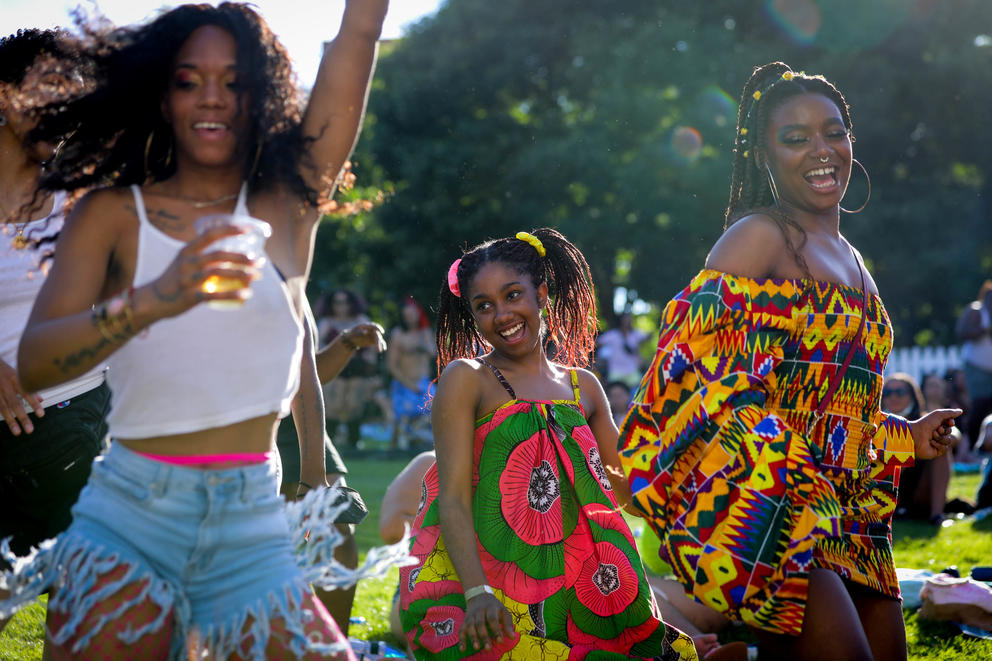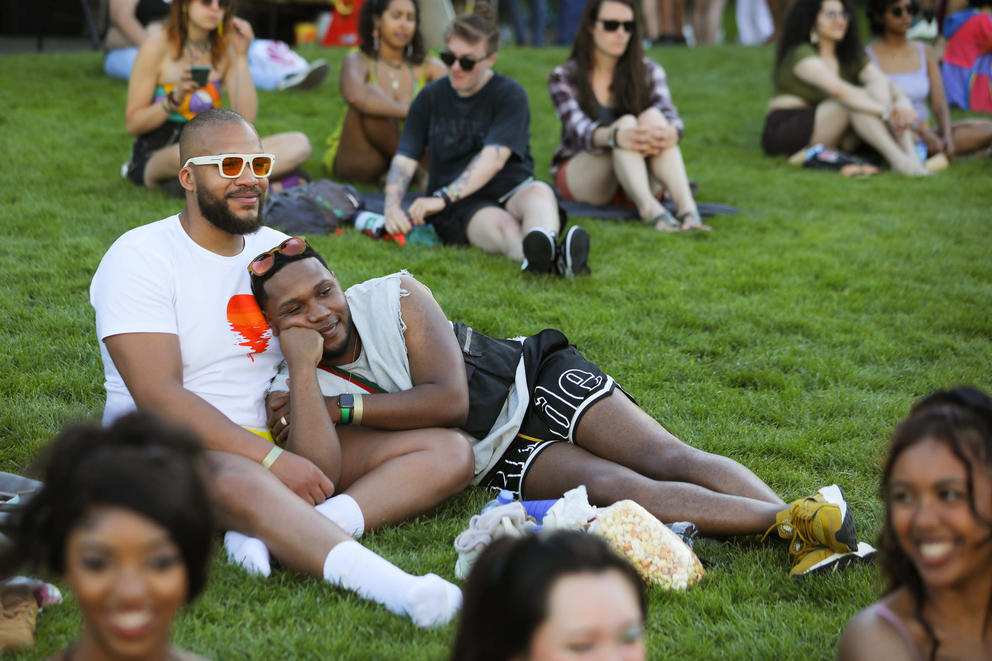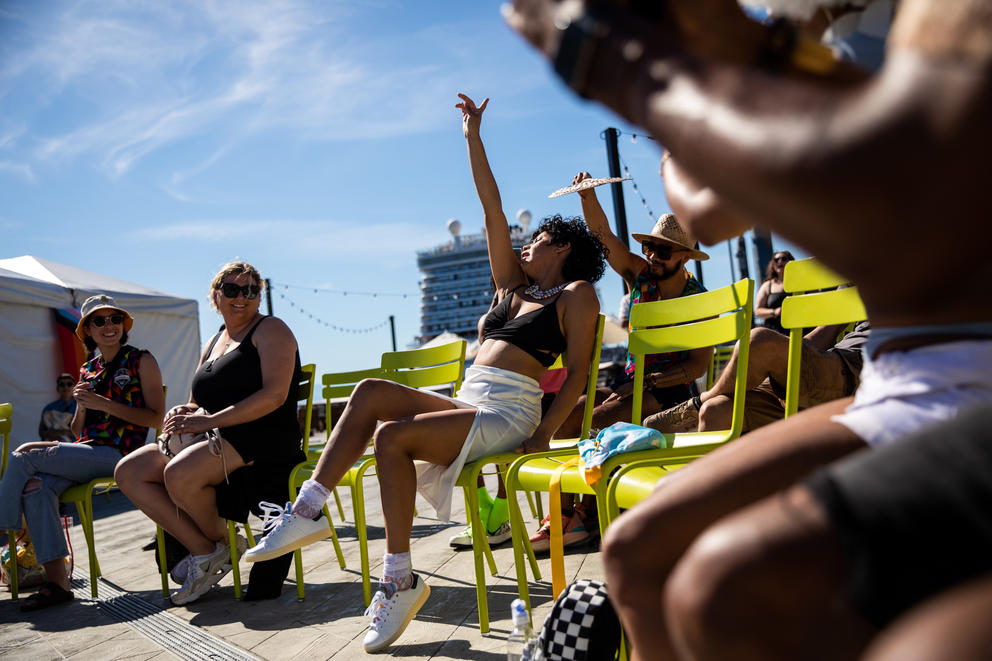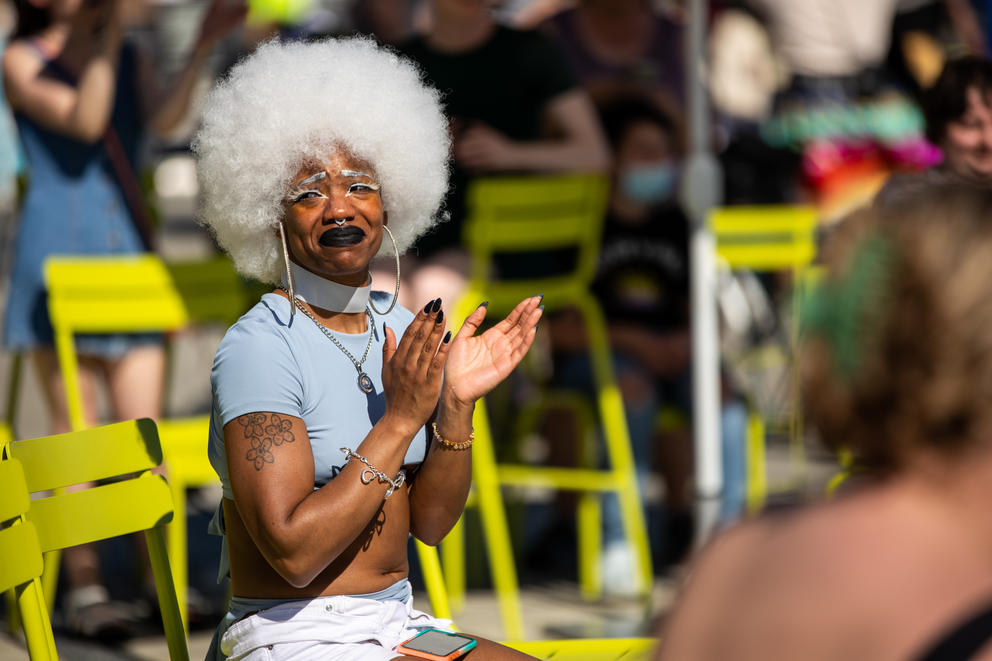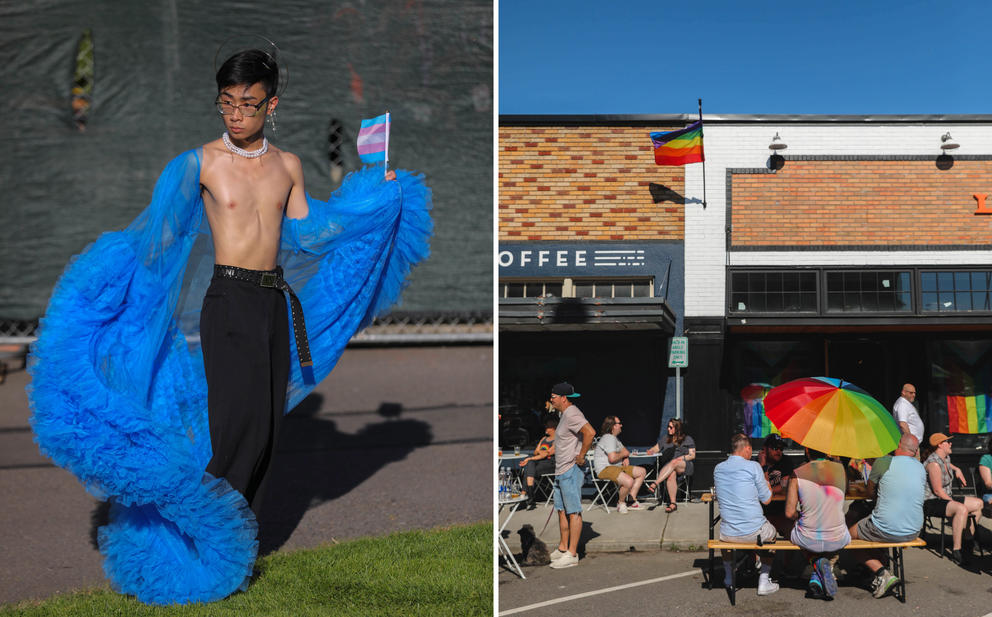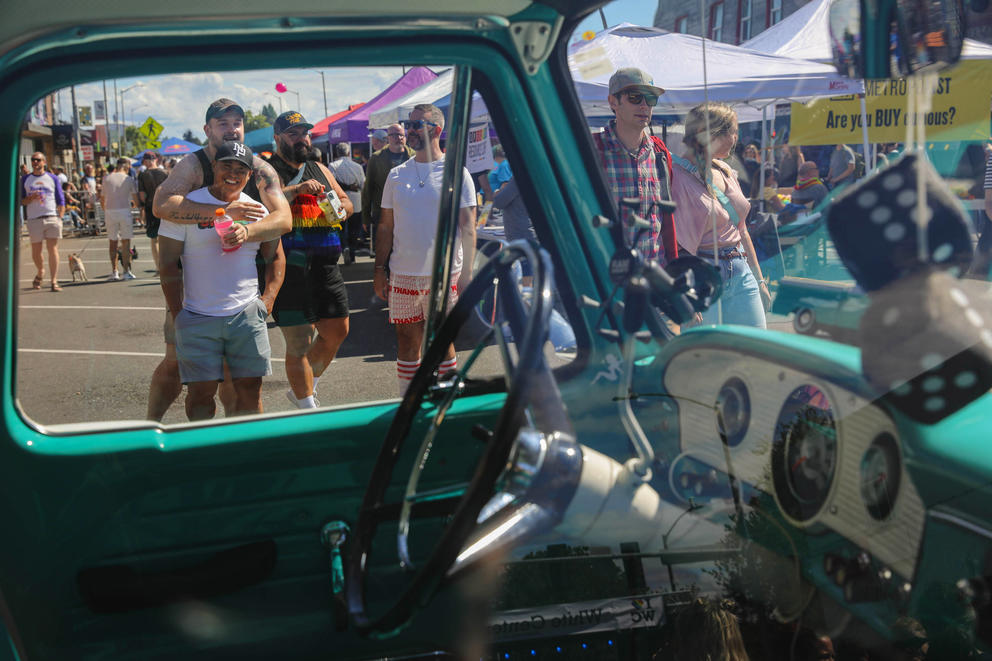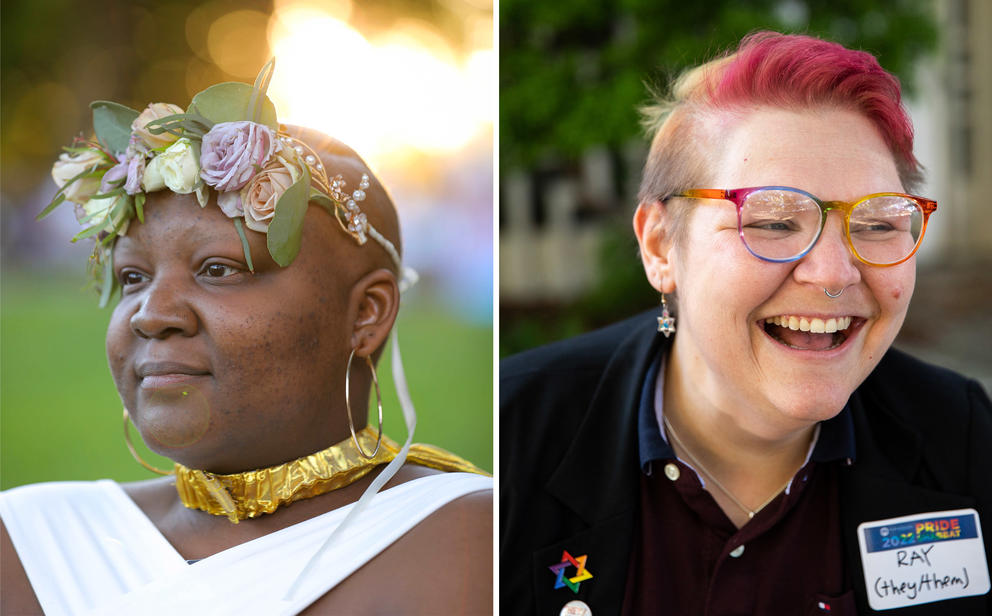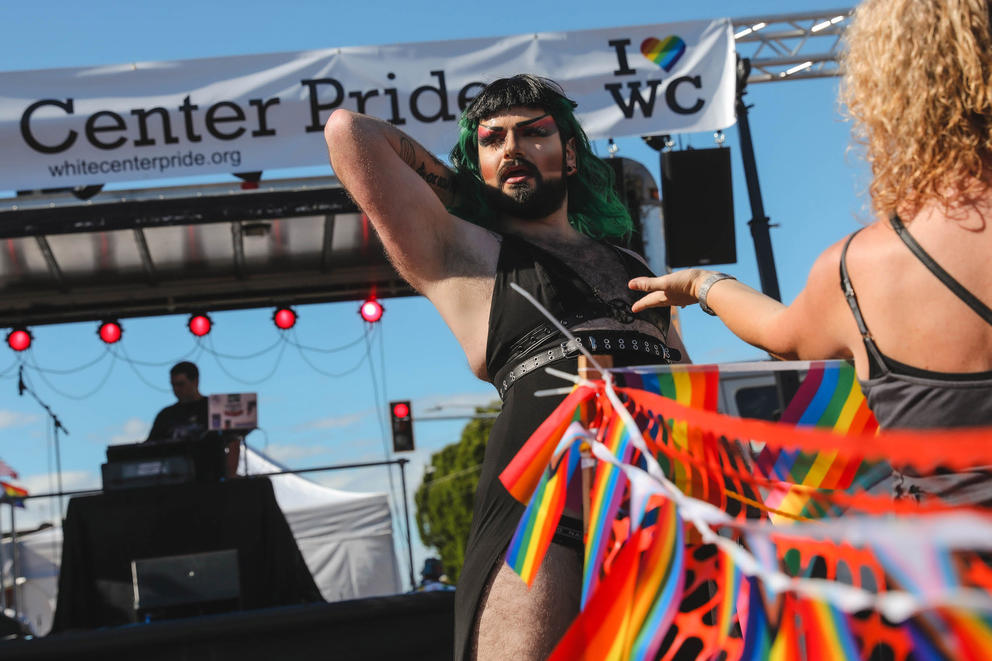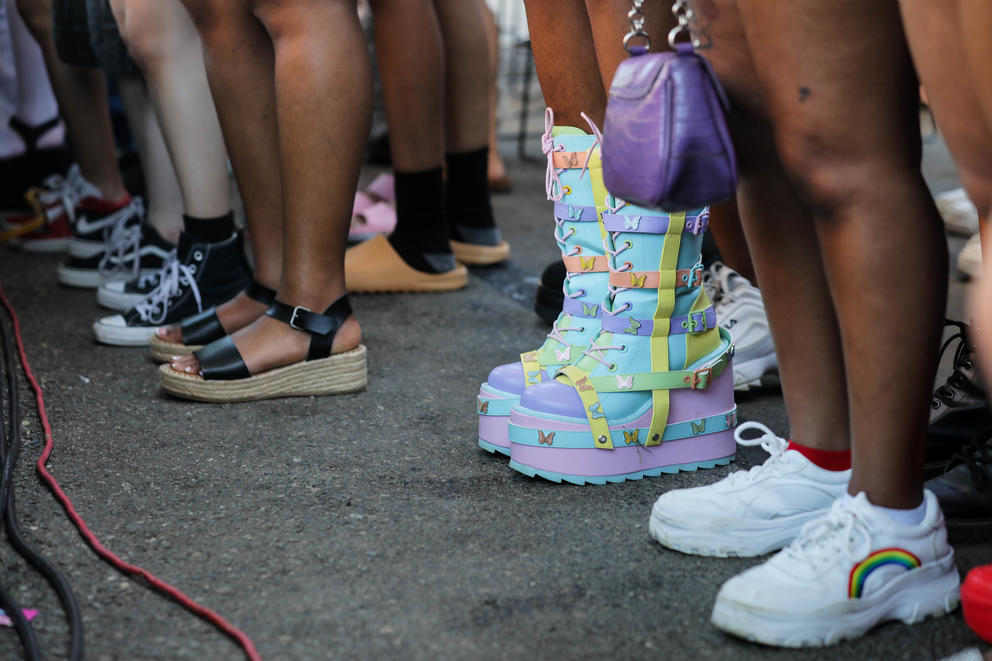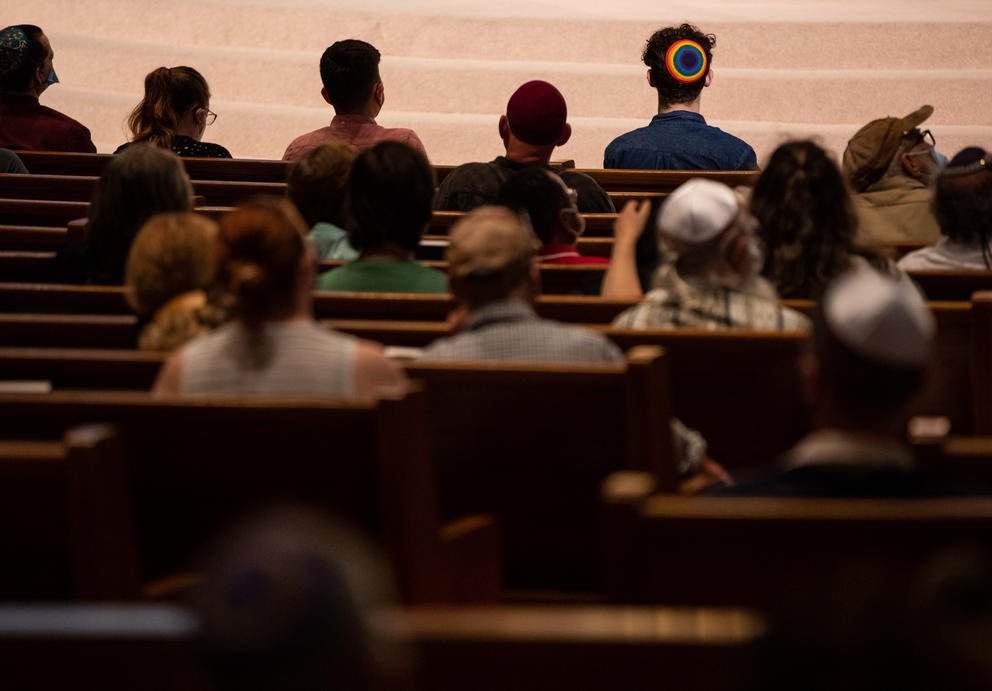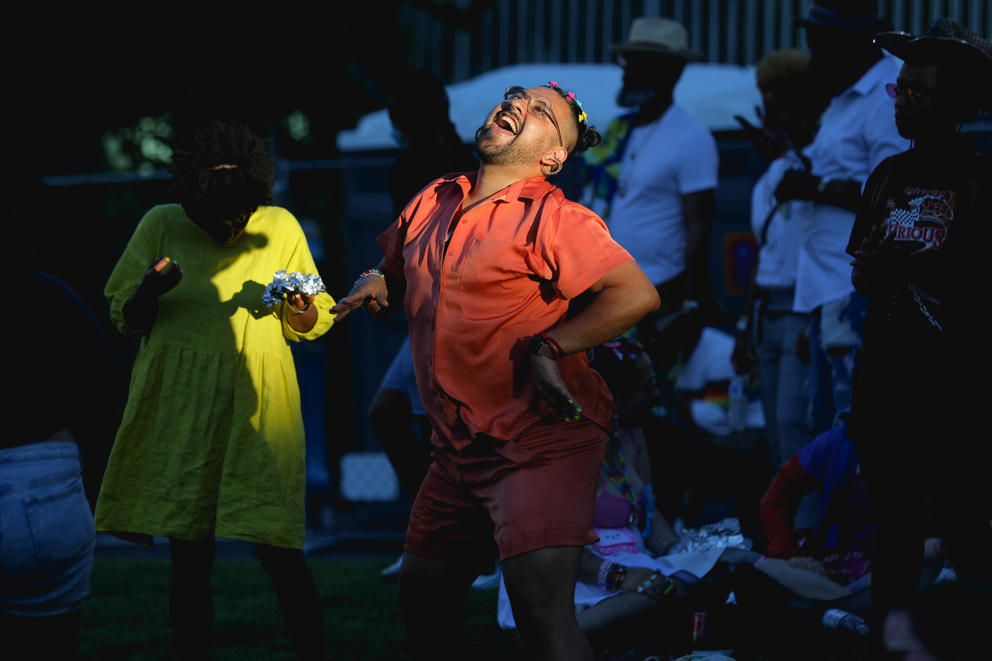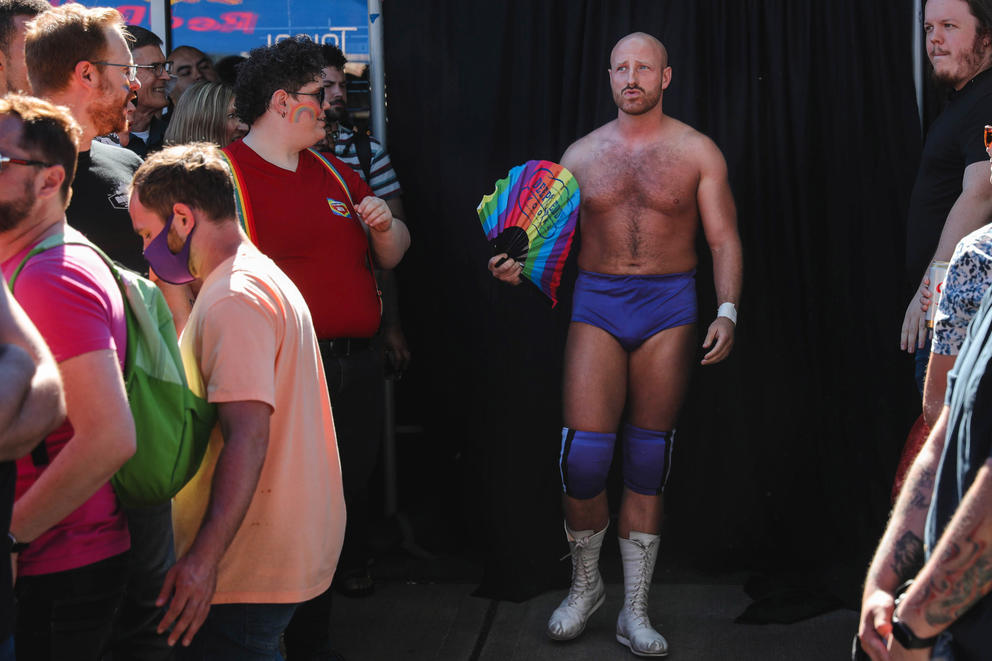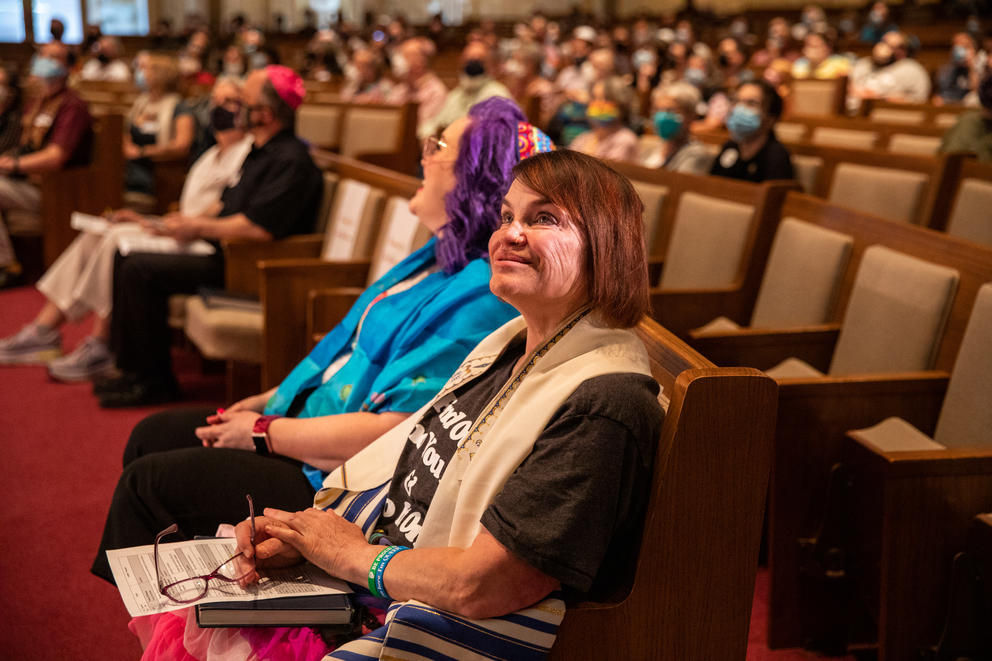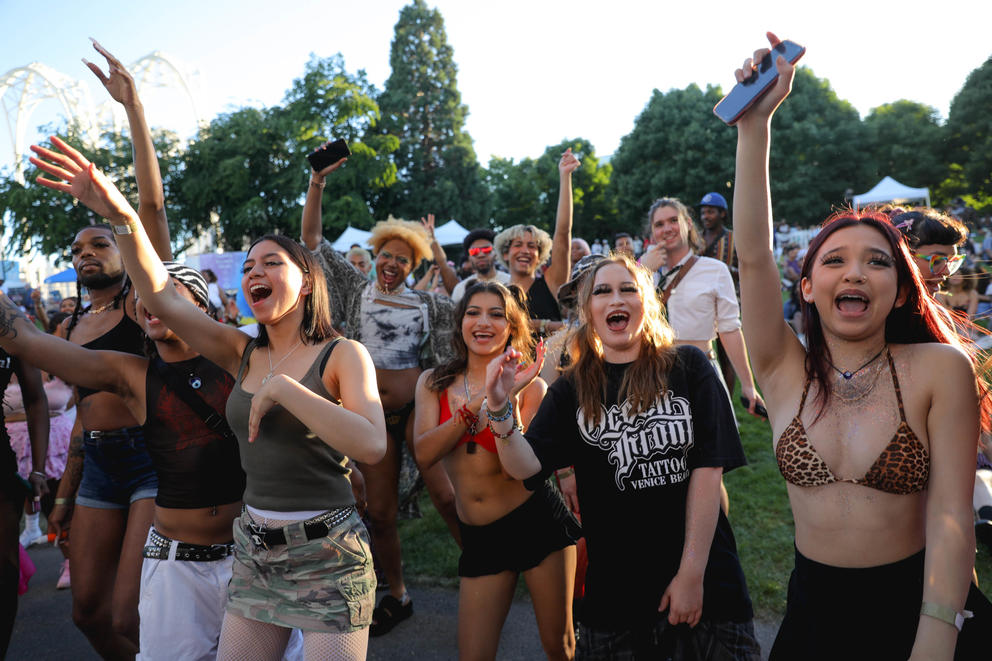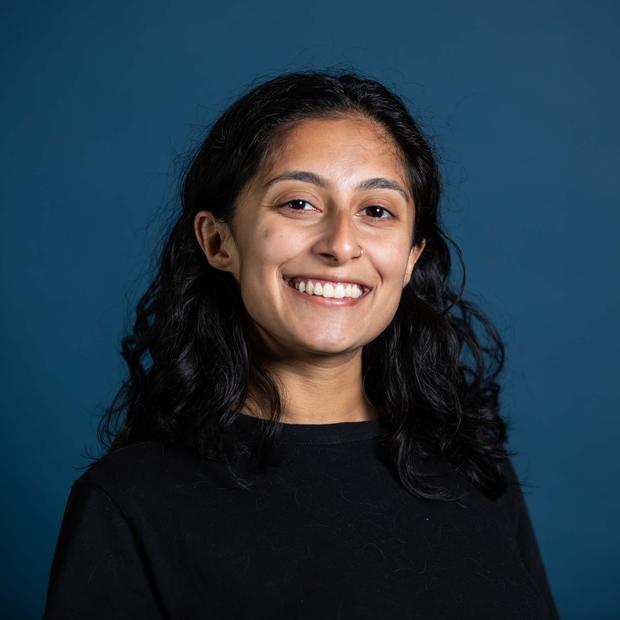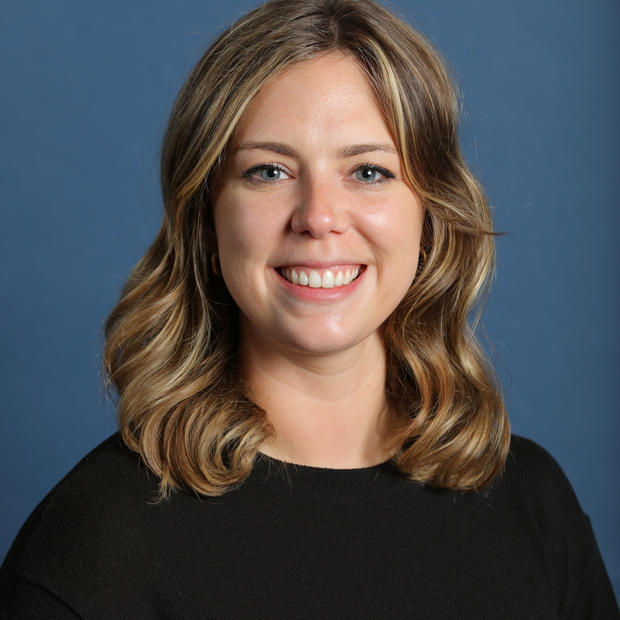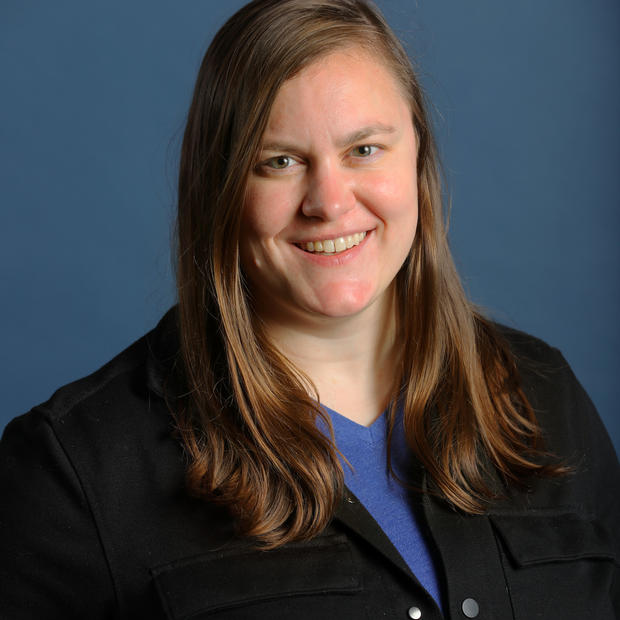“Everybody else needs to pay up before you feast on that culture,” said Renata B., a co-founder of Taking B(l)ack Pride, an event centering Black LGBTQ+ people.
The celebration, which occurred the same weekend as Seattle Pride’s downtown parade and Seattle PrideFest parties, was first held in 2020 as a way to center the perspectives of these individuals when talking about Black liberation and safety, as well as honor victims and survivors of police violence. The founders of Taking B(l)ack Pride told Crosscut they had witnessed the exclusion of queer and trans experiences from conversations about violence against Black people.
“It just so happens that these conversations that we were having amongst each other were happening during June,” said Mattie M., another co-founder of the event. June is widely regarded as Pride month to celebrate and honor LGBTQ+ history.
Elevating marginalized groups in Seattle’s LGBTQ+ communities
People of color had the chance to celebrate their identities at different local Pride events, like the Indigiqueer Festival on the Seattle waterfront.
“It’s hard to see Indigineity in the queer community if you’re living in the city,” said Hailey Tayathy, a member of the Quileute Nation, who curated the June 25 event. “It’s hard to find.”
The festival fits into the Indigiqueer Joy Campaign, a photography project and event series intended to highlight joy among Indigenous LGBTQ+ community members.
That theme of joy came up in conversations with other Pride event organizers, including Jason Loughridge, president of the White Center Pride Committee. He noted that the June 11 White Center Pride Street Festival was especially important this year following the neighborhood’s devastating loss last summer, when the Lumber Yard, its first LGBTQ+ bar, was damaged in a fire. The incident, which also impacted several nearby businesses, was investigated as arson.
“I remember being down there a year ago during these fires and we were crying outside,” Loughridge said. “And to see a year later that we’re laughing and dancing in the streets, it just felt really, really special.”
The Lumber Yard plans to reopen across the street from its previous location this year, according to its website.
Left: Storm Nguyen during the Taking B(l)ack Pride event on June 25, 2022 at Seattle Center. Right: People gather outside Moonshot Coffee and the soon-to-re-open Lumber Yard Bar during White Center Pride on June 11, 2022. The original Lumber Yard burned down early on July 5 last year in a suspected arson attack. It is scheduled to re-open in July at its new location across 16th Ave S. (Genna Martin/Crosscut)
Seattle’s Jewish community also had a chance to celebrate its LGBTQ+ members during the Pride Shabbat service at Temple De Hirsch Sinai on June 24.
“In Judaism, we are taught that every person is created in the image of God, which can honestly sometimes be a challenge when I feel like my body was a mistake,” said Ray Opatowsky, who attended the event. “Being able to see myself as holy, regardless of my gender identity or self-expression is something I cherish about Judaism, and that helps me love myself when it feels like the world is falling apart around me.”
Left: Diamond Sudds watches a performance during the Taking B(l)ack Pride, June 25, 2022. (Genna Martin/Crosscut) Right: Ray Opatowsky, who is a part of the Seattle Jewish Community, after attending the Pride Shabbat service at Temple De Hirsch Sinai on Capitol Hill on Friday, June 24, 2022. (Amanda Snyder/Crosscut)
Corporate influence during Pride
Festival attendees tired of seeing corporate logos during Pride may find reprieve in some of Seattle’s more community-centric events.
Large-scale parades and parties in Seattle faced hardship even before COVID, which severely hampered social gatherings. In the mid-2000s, for example, PrideFest started to build its own festival separate from the Seattle Pride parade.
Now people are pushing back on corporations – often prominent in larger parades and parties – that engage in “rainbow capitalism,” a practice of aligning themselves with Pride month to advertise.
The sponsors and partners behind Taking B(l)ack Pride include the Alphabet Alliance of Color, UTOPIA Washington and Queer The Land – all of which are centered around people of color and the LGBTQ+ community – as well as Seattle Pride itself. In comparison, Seattle Pride, which raised eyebrows earlier this year when it decided not to partner with Amazon, partnered with companies like T-Mobile, Starbucks and Microsoft.
Some neighborhood Pride organizers may find themselves torn between staying true to their values and raising enough money to cover festivities, like paying for performers.
Loughridge understands why Pride organizations rely on corporate sponsorships, though he said those behind the White Center Pride Street Festival tried to steer clear of them.
“It’s all become about big sponsors, big donors, big logos,” Loughridge said. “I think people are turned off by that, and I think that’s why they’re being drawn into these smaller Prides.”
Despite this, he thinks there can be room for bigger Pride celebrations and more localized events.
Mattie of Taking B(l)ack Pride has a suggestion for potential donors who want to contribute to Pride: Do it without the expectation that they will get public recognition.
“We have a particular sponsor this year who, overall, isn’t really that great,” Mattie said, adding that the donor made clear their name did not need to be publicized. “Shittiness or not, that’s money that we don’t have. That’s money that we could use.”
Beyond Pride month
Some Pride event organizers go beyond the month of June to make change, like those at Taking B(l)ack Pride, who, Renata said, work year-round, from focusing on state legislation to creating housing.
“That’s what folks are living and breathing, and it’s not just relegated to a time when they can make money off of it,” she said.
For some communities, celebrations like White Center Pride are just one piece of a larger puzzle.
“We do Pride things all year,” Loughridge said, like monthly happy hours to get people together. “I think that’s another reason you need these smaller neighborhood Prides, to keep people coming together and engaged all year long. Pride just doesn’t have to be about one day, or one weekend, or one month.”
Crosscut's Amanda Snyder contributed reporting to this story.


